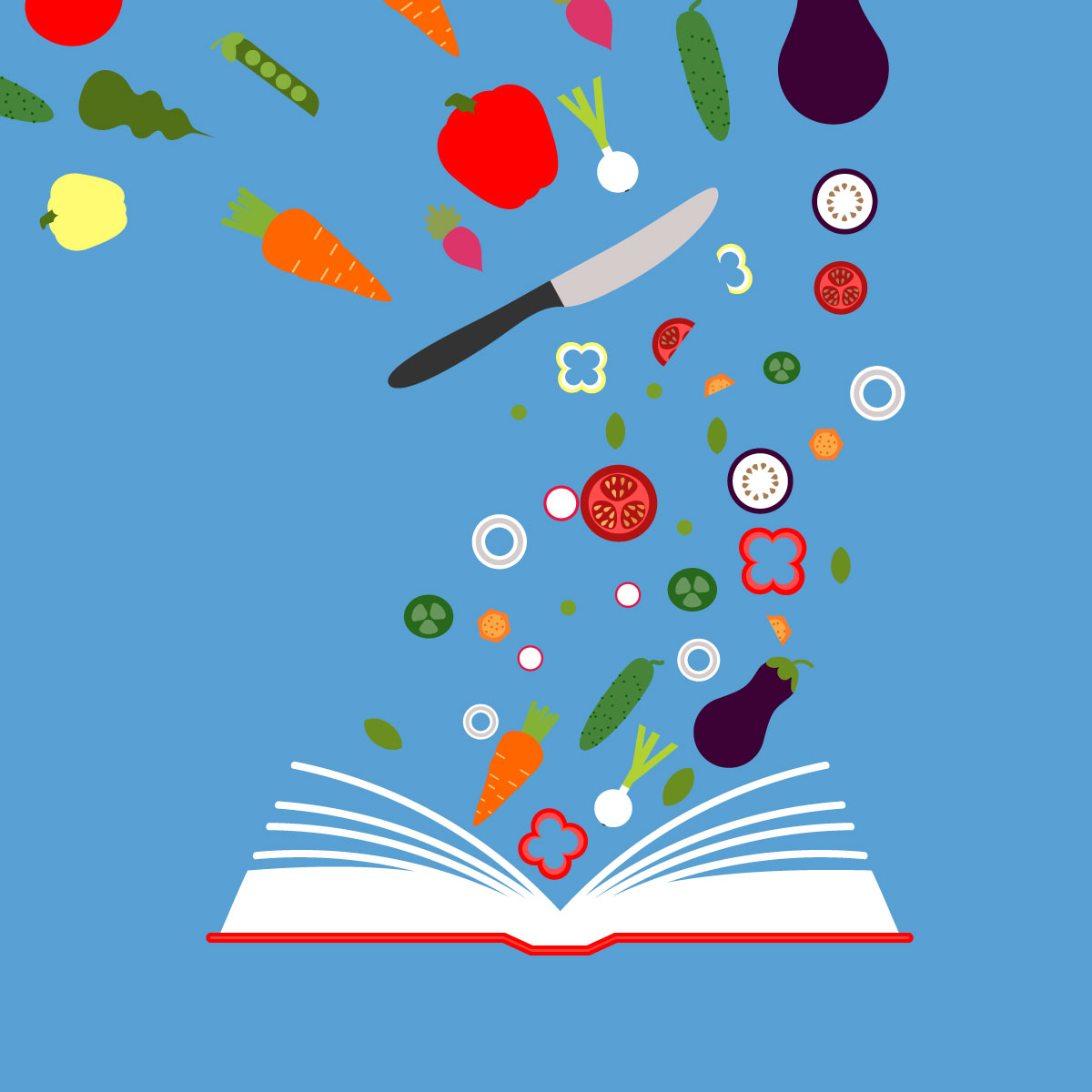
Whether for soufflé, soup, salsa or something else altogether, a culinary recipe is essentially a how-to document. As a form of technical editing, then, recipe editing is all about ensuring that the user (the reader) can successfully assemble the product (a dish).
As a recipe editor, it’s my responsibility (along with the author’s, of course) to make sure the recipe is reliable — that the ingredients and quantities are logical, and the method instructions complete and clear. Gaps in content or leaps in logic may lead to the recipe’s failure. And while the user of a recipe collection such as a cookbook may forgive one recipe failure, a second risks the author losing the reader for good.
And there’s a lot going on in recipes! My focus is on recipe structure (unless already addressed by a substantive editor), as well as correctness and consistency in phrasing, measures and ingredients. For example, if “cilantro” is called for in the ingredient list, the method shouldn’t refer to it as “coriander.” And in any case, which is the best term to use? The terminology should suit the market (e.g., Canadian, U.S., North American, U.K., or maybe even Australian). I’m able to resolve many discrepancies myself by determining the manuscript’s prevalent style and what suits the target readership, though undoubtedly there’ll be queries for the author about prep and technique.
I also line edit for clarity, conciseness and flow. And if the author assumes too much — or too little — knowledge on the readers’ part? Well, then I tweak the method to again suit the readership, whether beginner or seasoned home cooks, say. Plus, I suggest descriptors to swap for those that fall flat (“great” and “delicious” come readily to mind!).
Recipe editing challenges
Recipes have specific editing challenges, keeping things fun:
- Cooking terminology. The author may be an expert cook, but that doesn’t mean they’re an expert recipe writer. It’s important to use the right action verb, with which frequent recipe users will be familiar: for example, “dredge” rather than “coat” or “drizzle” rather than “sprinkle,” if that’s what is meant.
- Conversions. Measures might be converted from imperial to metric or vice versa, and perhaps from volume to weight — tricky because those conversions depend on the ingredient.
- Space restrictions. Although less of an issue with blogs than with printed cookbooks, space is limited, so the text needs to be kept tight. (Never mind that wordiness distracts readers from the task at hand: preparing the dish.)
Main ingredients for successful recipe editing
Beyond an understanding of conventions such as recipe structure and standard terminology, a few things make for a good recipe editor.
Cooking know-how
You needn’t be an expert cook to edit recipes well, though cooking know-how (including familiarity with food) is one of your best resources, allowing you to visualize each step. Consider this instruction:
Grill the chicken burgers, then place on the buns and serve.
Seems straightforward at first, doesn’t it? But … what gaps do you notice? (Hint: You’ll want to prompt the author for the cooking time and a sensory cue for doneness so that the recipe user doesn’t end up with undercooked chicken. And what burger is complete without condiments and toppings?)
As recipe editor, it’s your job to fill in details — or prompt the author to.
Strong line editing and copy editing skills
Good recipe editors are detail-oriented and rigorous in their copy editing to ensure that the recipes work. But recipes and recipe collections don’t only instruct; they also transport. (How many of us peruse our cookbooks without ever preparing a recipe from them?) For chef Yotam Ottolenghi, good cookbooks — those with a strong concept — fall “somewhere between a manual and a novel … They take you somewhere and they tell you a story.” The recipe headnotes support the collection’s overall concept, and they’re where the author’s voice can really shine. So thoughtful line editing is crucial here.
A sharp eye
Cross-referencing is key. If cream is listed in the ingredient list, it had better be used in the method!
If the dishes have been photographed, take a good look. Does a recipe call for green bell peppers, yet the photo shows only red? Is Italian parsley used as garnish when the recipe calls for cilantro? Flag discrepancies so the client can adjust the recipe (or possibly the photo) as needed.
Where to find work as a recipe editor
Some book publishers have dedicated cookbook programs, and others publish recipes in books on nutrition and well-being. As well, many magazines (print and online) publish recipes regularly, as do meal-kit companies. And then there are the bloggers and other self-publishing authors, including organizations producing a recipe collection as a fundraiser or giveaway, or to promote a product. The work is out there.
Some editors recipe-edit exclusively, though it’s not uncommon to do it as part of a broader portfolio. While I work in other genres too, for variety and balance, for me, cookbooks are the happy intersection of my love of food/cooking and my other passion, which is to say editing.
___
The Editors’ Weekly is the official blog of Editors Canada. Contact us.
Discover more from The Editors' Weekly
Subscribe to get the latest posts sent to your email.
